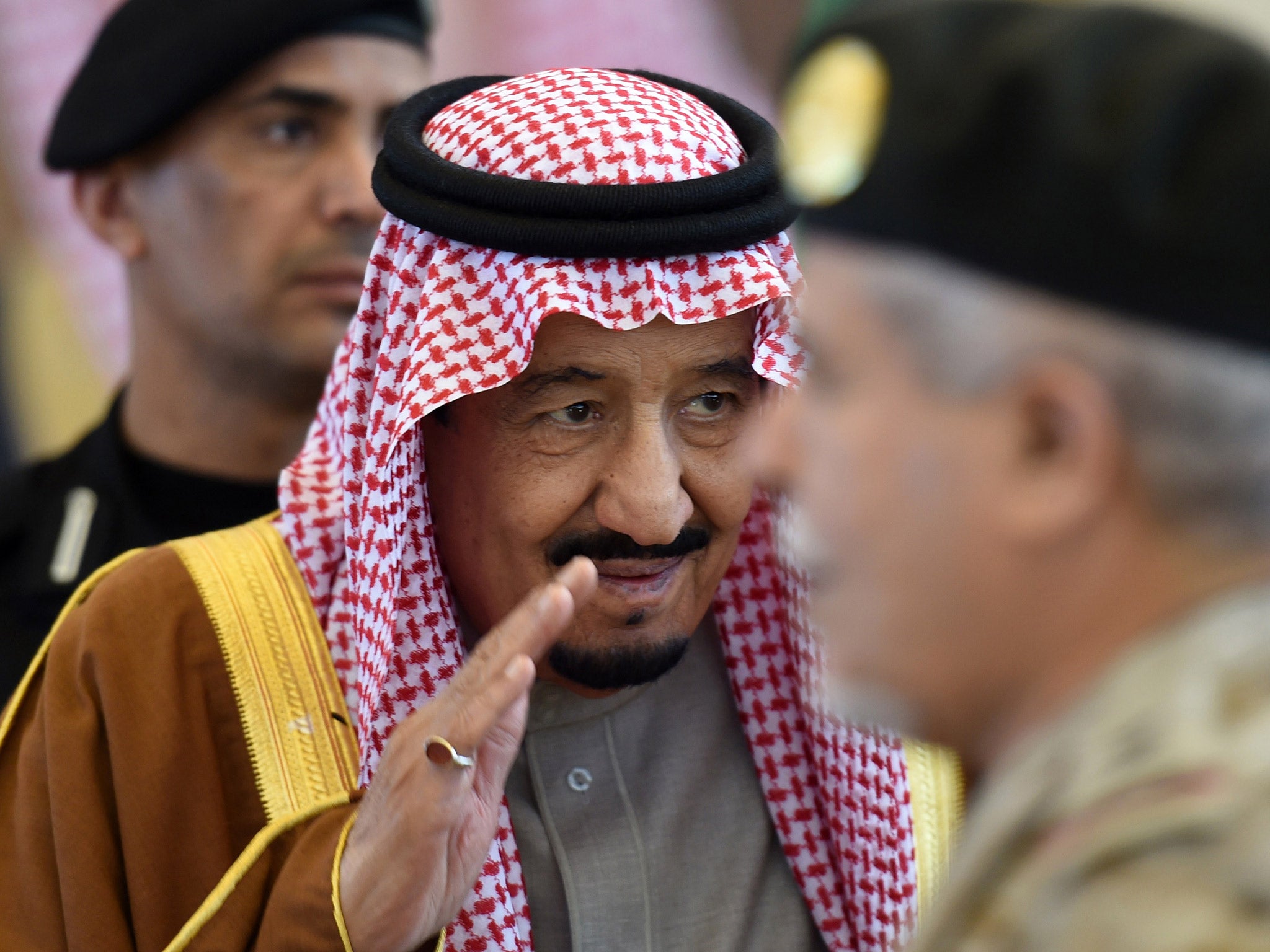Saudi Arabia: The desert kingdom’s coalition is symbolic not substantial
With so little required from members and so much divergence between them terrorists have little to fear from the alliance

Your support helps us to tell the story
From reproductive rights to climate change to Big Tech, The Independent is on the ground when the story is developing. Whether it's investigating the financials of Elon Musk's pro-Trump PAC or producing our latest documentary, 'The A Word', which shines a light on the American women fighting for reproductive rights, we know how important it is to parse out the facts from the messaging.
At such a critical moment in US history, we need reporters on the ground. Your donation allows us to keep sending journalists to speak to both sides of the story.
The Independent is trusted by Americans across the entire political spectrum. And unlike many other quality news outlets, we choose not to lock Americans out of our reporting and analysis with paywalls. We believe quality journalism should be available to everyone, paid for by those who can afford it.
Your support makes all the difference.The anti-terror alliance announced by Saudi Arabia inspires confidence in name only.
For some time, the US has lamented the absence of Sunni Muslim states on the front lines of the fight against Isis; the UAE and Jordan have followed Saudi Arabia in diverting their planes to the war (roundly condemned by human rights groups) against the Shia Houthis in Yemen, while others such as Qatar have quietly withdrawn to back-seat status. Few analysts believe that this new front of 34 Muslim countries will take a lead in confronting the most serious terrorist threat in the region.
It is very much a top-down project, led by the Defence Minister and Deputy Crown Prince Mohammed bin Salman, who is seeking to bolster the country’s status as a regional player. That Iran is not among those invited bespeaks the Saudis’ desire to counter the influence of their Shia nemesis, albeit with 33 other Sunni states by their side.
How involved those 33 will be in any proceedings is up for question. There was no conference to lay the groundwork for the new alliance, and no resources have been committed to it by members, ranging from indebted Chad to war-torn Libya.
The US was not informed of the alliance’s creation ahead of time – a further indication that the projection of Saudi leadership is likely to be the motivation here, over and above an increased military commitment to counter terrorism or anything of the sort that would indeed challenge Isis.
Prince Bin Salman said the alliance would “not only” target Isis. No plans or strategic objectives were announced. The option is left open to confront political dissent of the kind that threatens many of the alliance’s more despotic members. With so little required from members and so much divergence between them, and with so vague an objective, terrorists have little to fear from Saudi Arabia’s “coalition”.
Join our commenting forum
Join thought-provoking conversations, follow other Independent readers and see their replies
0Comments